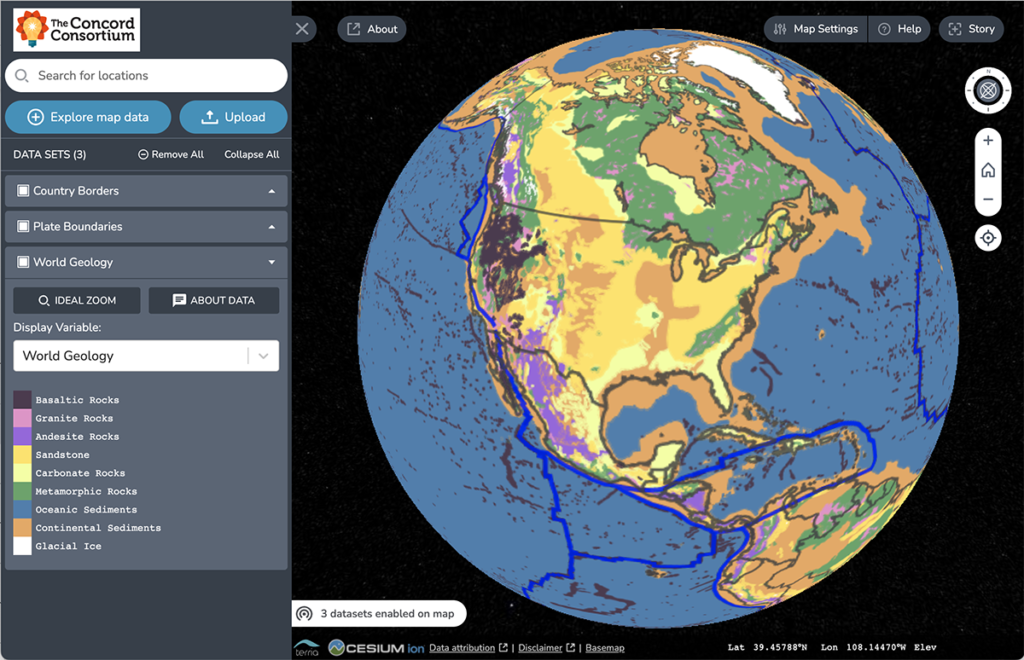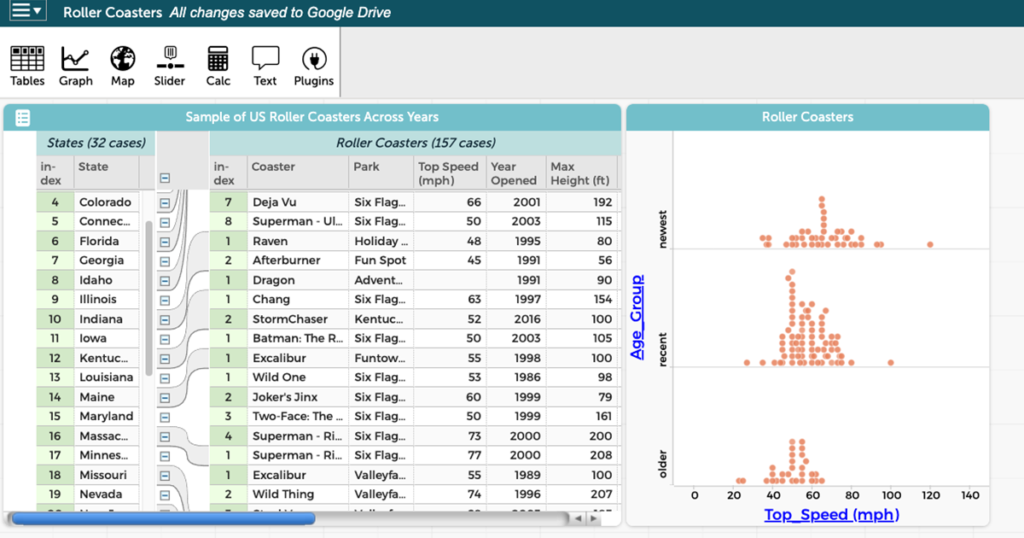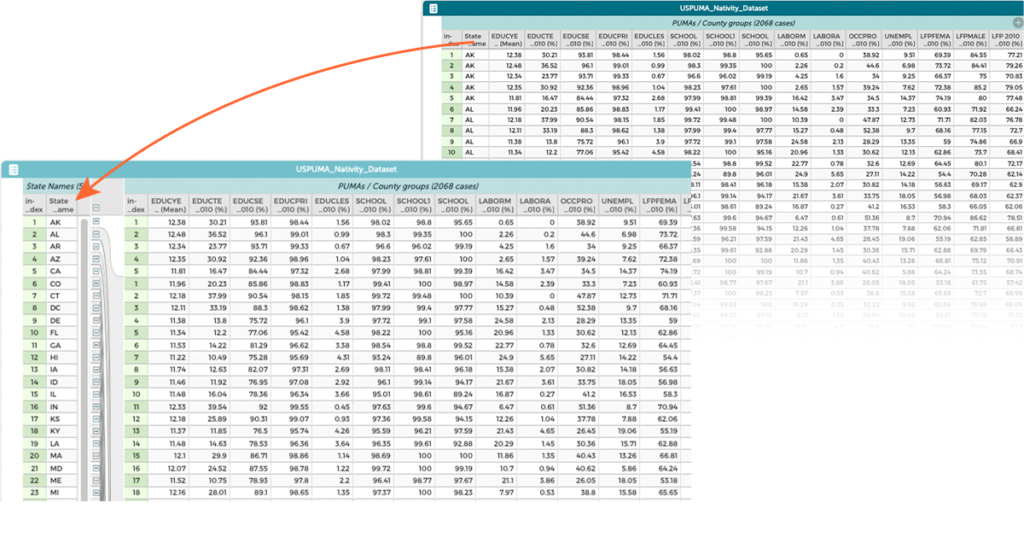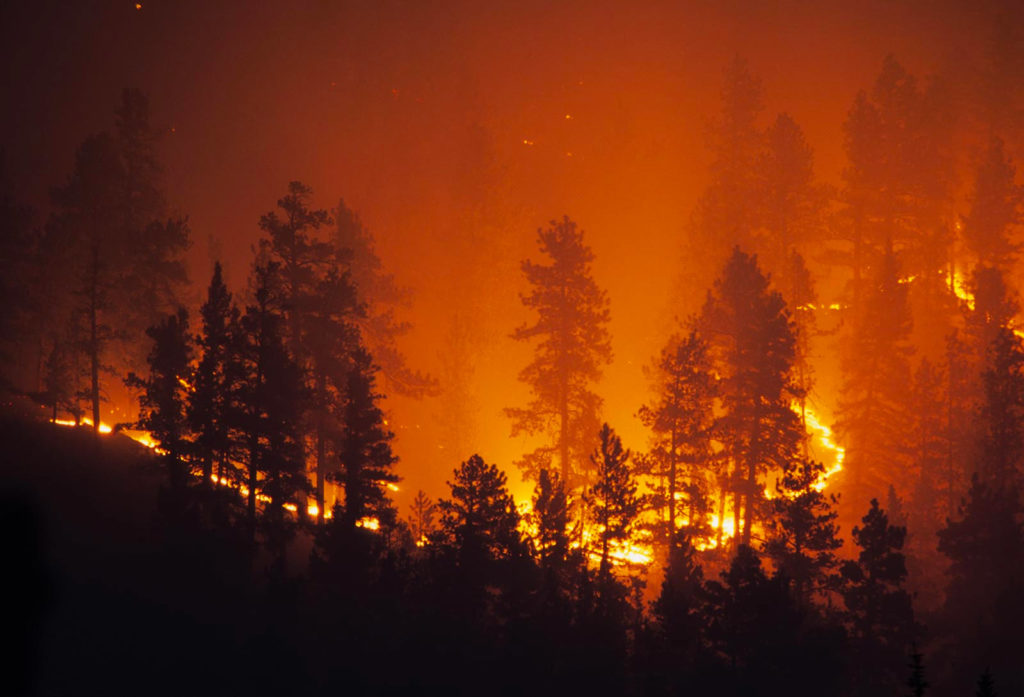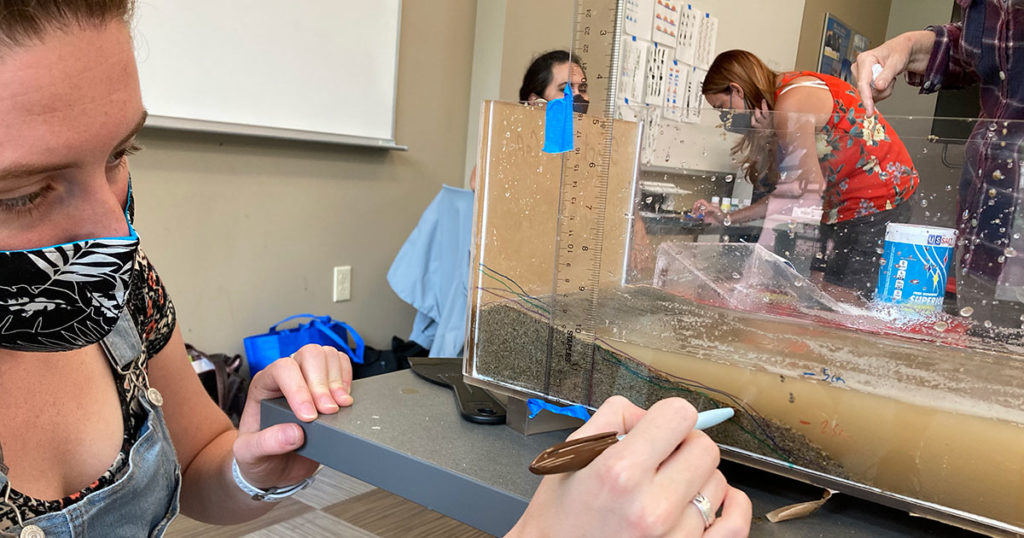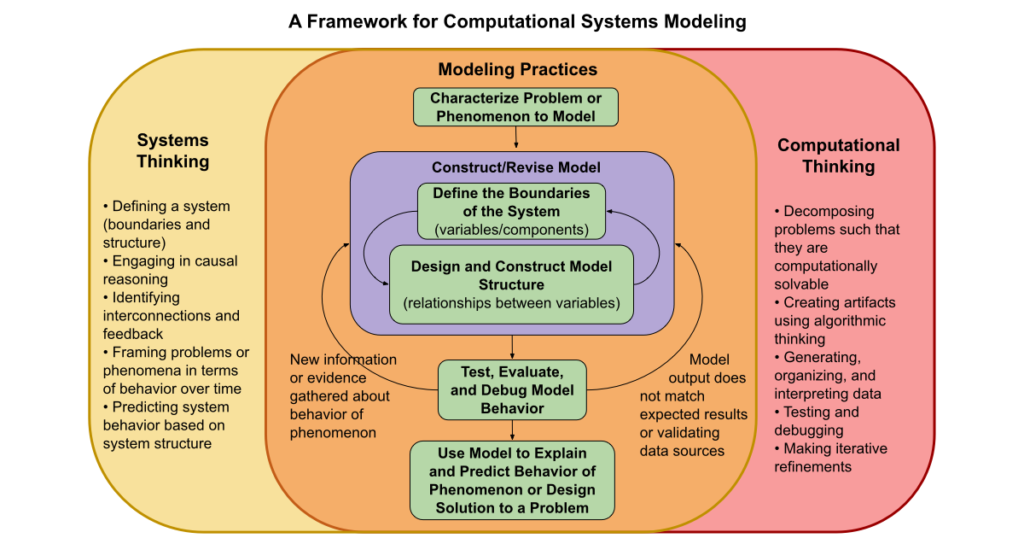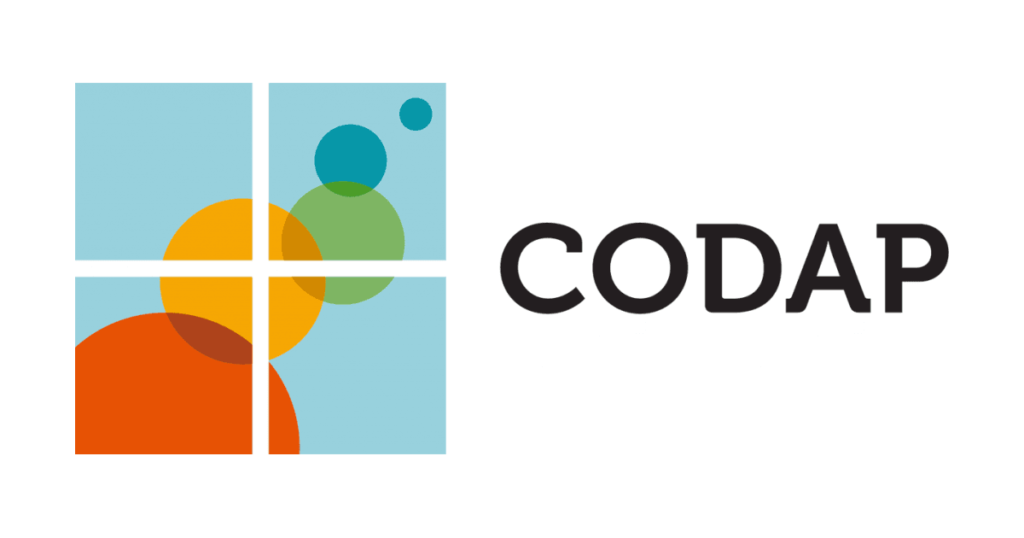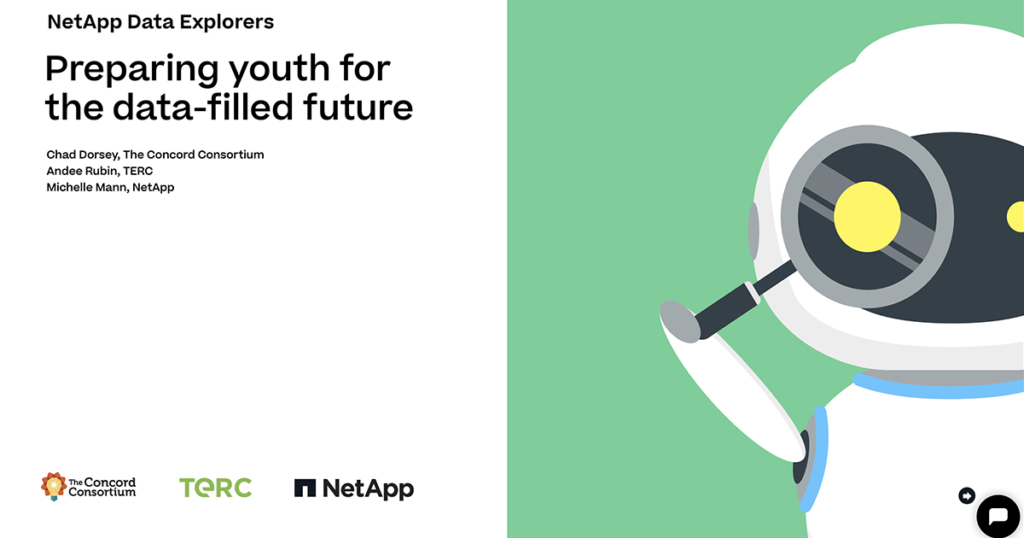Category: 2022
We’re delighted to present the year in review with our top 10 highlights. 1. We Update Our Workspaces Most of our employees now work remotely much of the time. While we love to collaborate over Zoom, in Google Docs, and on GitHub and Pivotal Tracker, we also enjoy getting together in person, especially in our […]
We published a record number of publications in 2022, including 15 journal articles and a book chapter. From articles for educators to implement free resources to research articles to inform the field, we wrote about a wide range of topics, including data science education, artificial intelligence, geoscience education, game-based learning, and more. Most of the […]
Traditional geologic maps beautifully illustrate the many different types of rock found on Earth’s surface. Geoscientists can look at a colorful geologic map and immediately spot important pieces of the story of Earth’s geologic history. For instance, in the map below, the red area found in Canada represents bedrock formed in the Late Archean Era […]
Ask Hollylynne Lee and Gemma Mojica, the co-directors of the Hub for Research and Innovation in Statistics Education at the Friday Institute for Educational Innovation at NC State University, about their current goal for education and you’ll hear their very big plans: transform undergraduate teacher preparation in data science and statistics education. With the exponential […]
With a deluge of data — from data about climate change and the pandemic to data about town demographics and local energy use — it is increasingly vital that the public are able to make sense of data to inform their decisions. But datasets can be overwhelming, at least at first glance. For example, census […]
It used to be that natural disasters like wildfires, floods, and hurricanes each had their own season, likely to occur in predictable locations and at certain times of the year. Changes in the climate have expanded and shifted both the map of where people may be at risk and the months when these hazards most […]
With Indigenous partners from both Alaskan and Hawaiian Native backgrounds, our NSF-funded project is co-designing a middle school curriculum to bridge Indigenous and Western science approaches to understanding the effect of climate change on coastlines.
Our Multilevel Computational Modeling collaborative project with Michigan State University has developed a novel theoretical framework based on a literature review of modeling, systems thinking (ST) and computational thinking (CT). The framework, which was also informed by years of work developing our SageModeler systems modeling software and researching student modeling, highlights how both ST and […]
Devin Finzer learned the value of data exploration and visualization early. His father, Bill Finzer, led the Fathom Dynamic Data Software development team at KCP Technologies and has been leading the development of the Common Online Data Analysis Platform (CODAP) at the Concord Consortium since 2014. Thanks to Devin Finzer’s generous gift of nearly $2 […]
A new report details the successes of an afterschool program designed to engage and empower underrepresented teens in using data to explore issues of societal importance. Coauthored by Concord Consortium president and CEO Chad Dorsey, Andee Rubin of TERC, and Michelle Mann of NetApp, Preparing youth for the data-filled future (PDF) describes essential takeaways for […]

